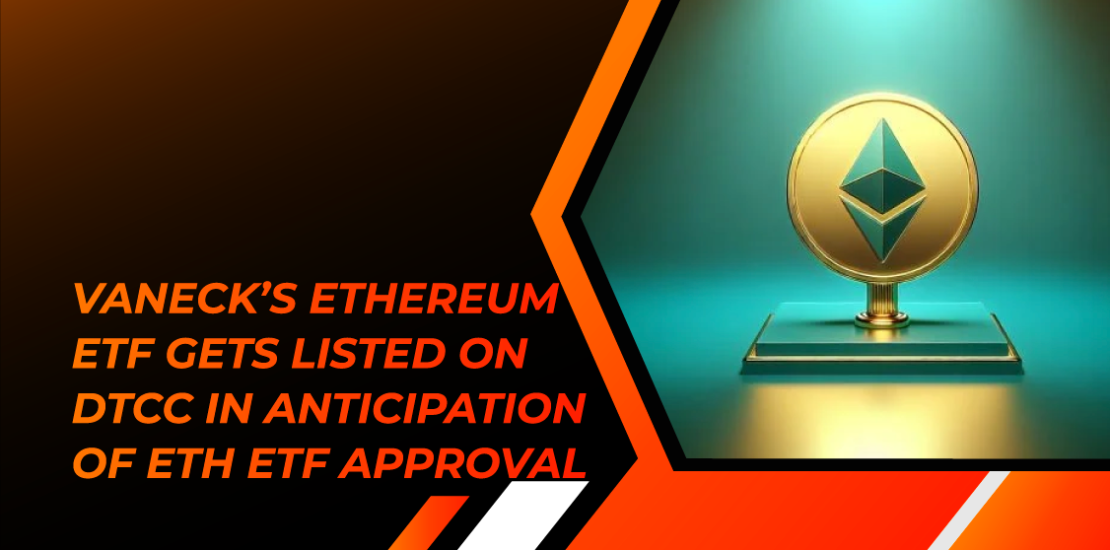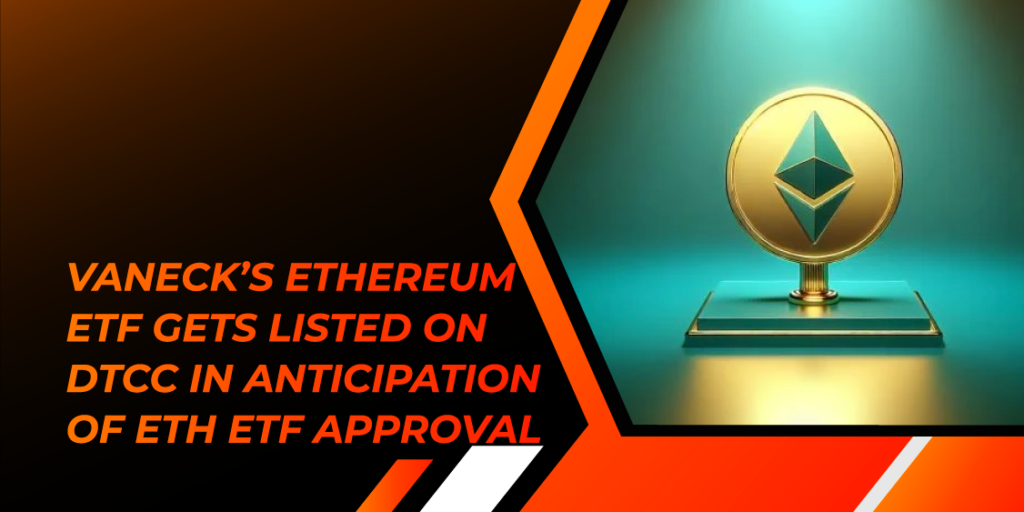- May 23, 2024
- Posted by: [email protected]
- Category:


VanEck’s Ethereum ETF, denoted by the ticker symbol “ETHV,” has recently achieved a significant milestone by being formally listed on the Depository Trust and Clearing Corporation (DTCC). This development is not merely symbolic; it represents a crucial step forward in the ETF’s journey towards obtaining final approval from the U.S. Securities and Exchange Commission (SEC). The DTCC, a cornerstone of the American financial market infrastructure, plays a pivotal role in facilitating clearing, settlement, and transaction reporting services. Therefore, the listing of VanEck’s ETF on the DTCC platform underscores its growing legitimacy within the financial ecosystem.
Despite this milestone, it’s important to note that VanEck’s ETF remains inactive on the DTCC website. This status indicates that the processing of transactions related to the ETF cannot commence until the necessary regulatory approvals are obtained. While the listing itself is a positive development, it also serves as a precursor to the ultimate goal of SEC approval.
The DTCC’s ETF list encompasses both active ETFs, which are eligible for processing, and inactive ETFs awaiting activation. VanEck’s ETF falls into the latter category, highlighting the regulatory hurdles that still need to be overcome. Recent reports have indicated that SEC officials have engaged with major exchanges such as Nasdaq, the Chicago Board Options Exchange, and the New York Stock Exchange. These engagements suggest ongoing discussions aimed at refining and updating existing spot Ether ETF applications to meet regulatory standards.
The SEC’s recent actions signal a potential shift in stance, possibly influenced by broader political factors. The growing prominence of cryptocurrency, coupled with notable endorsements from figures like former President Donald Trump, may have prompted the Biden administration to reassess its regulatory approach. As a result, the SEC now faces impending deadlines for decisions on VanEck’s spot Ether ETF application, with similar deadlines looming for other ETF proposals.
In response to heightened regulatory scrutiny, financial managers have been requested to amend and refile their filings for proposed spot Ether ETFs. This proactive approach from regulators has been met with cautious optimism from industry analysts. Eric Balchunas, a senior Bloomberg ETF analyst, has notably revised his estimation of approval likelihood to 75%.
Meanwhile, Fidelity has taken steps to address regulatory concerns by submitting an amended S-1 application for its spot Ether ETF. This updated filing clarifies that the underlying Ether tokens will not be staked, addressing potential regulatory uncertainties. S-1 filings, mandatory for launching publicly traded securities products in the U.S., are indicative of Fidelity’s commitment to navigating the regulatory landscape effectively.
The anticipation surrounding the approval of spot Ether ETFs has also had a notable impact on the broader cryptocurrency market. In particular, the prospect of ETF approval has bolstered investor interest in spot Bitcoin ETFs. Recent data has shown an uptick in inflows into Bitcoin ETFs, with BlackRock’s iShares Bitcoin Trust (IBIT) experiencing a significant inflow of $290 million on May 21. This influx represents a reversal in the trend of minimal inflows observed over the preceding weeks, indicating renewed investor confidence in cryptocurrency-based investment products.
Despite the positive sentiment surrounding cryptocurrency ETFs, market conditions remain volatile. On May 21, Bitcoin reached a six-week high of $71,600 before experiencing a downturn and dipping below the $70,000 level during early trading on May 22. At the time of writing, Bitcoin is currently trading at $69,444, underscoring the dynamic nature of cryptocurrency markets and the importance of regulatory developments in shaping investor sentiment.



